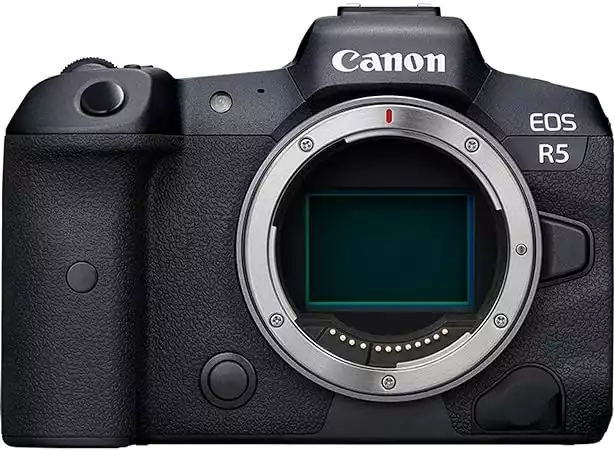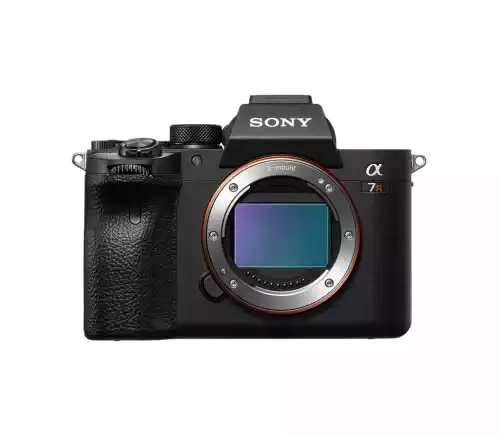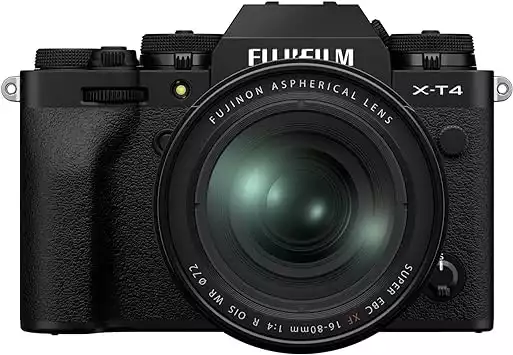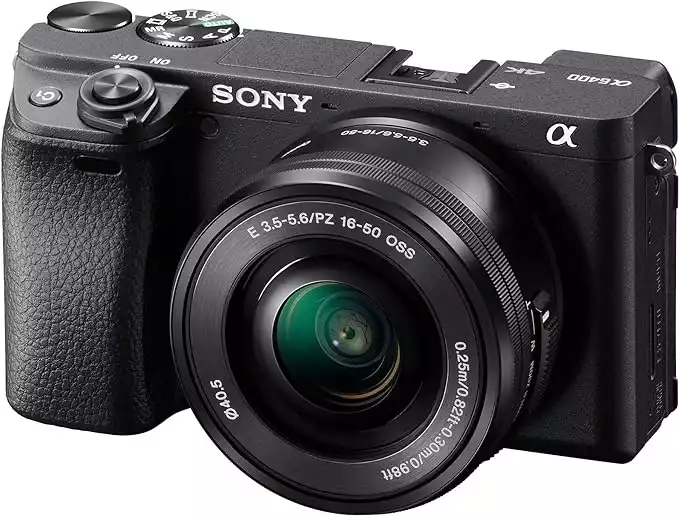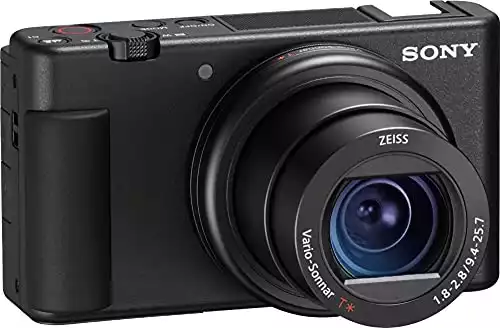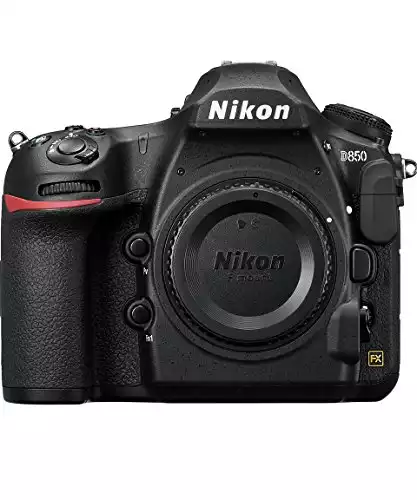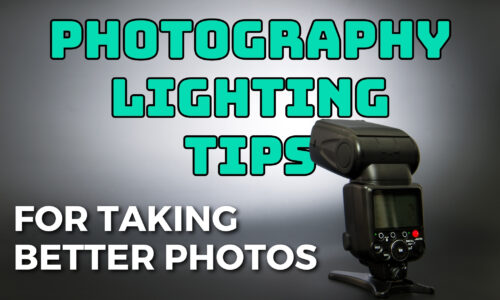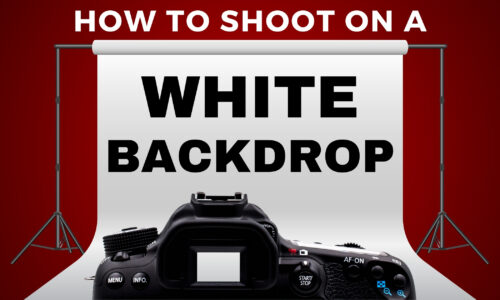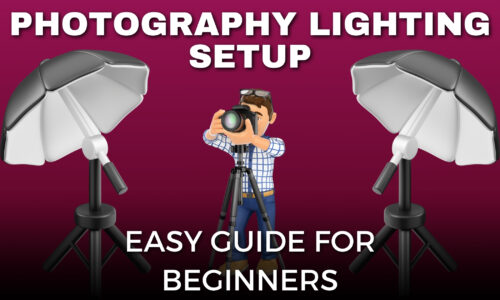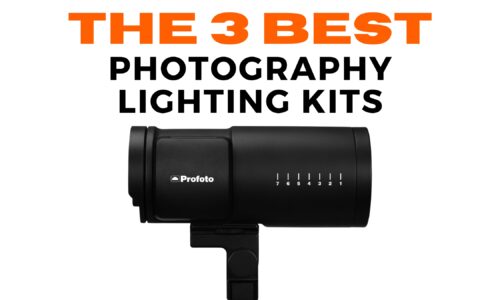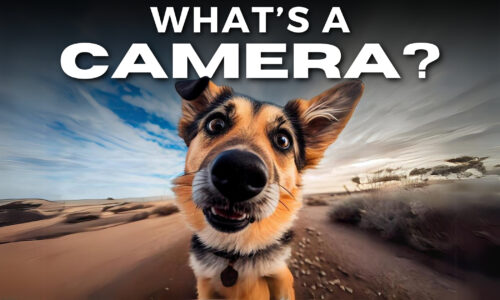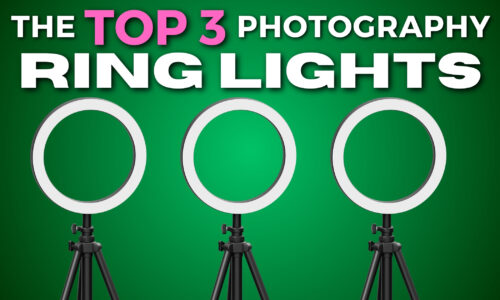Best Photography Cameras of 2024 (New and Top Rated Models)
Choosing the best photography camera for your needs means considering several factors: your photography style, the environments you shoot in, your experience, and the subjects you focus on.
But beyond that, you also need to consider the lens compatibility the camera offers, its interface is user-friendly, and whether it’s suitable for beginners or professionals.
Because there’s no one-size-fits-all when it comes to photography cameras, as each person might prioritize different features depending on their unique requirements.
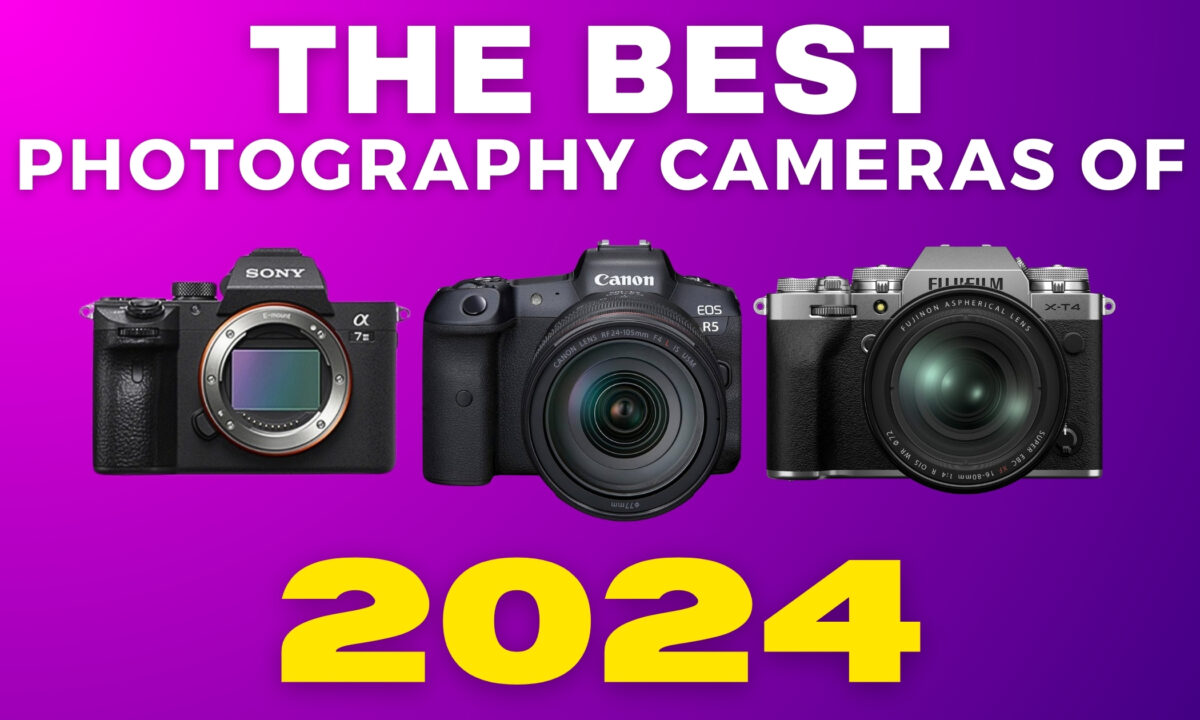
Some value high resolution for stunning print-quality shots, while others might prioritize fast autofocus for capturing action shots. Compactness may be important to some photographers, while a broad range of lens options might matter more to others.
A good camera should also offer high resolution and come with a decent warranty from a reputable brand.
With all of this information in mind, our five picks for the best photography cameras are:
- Canon’s EOS R5 (Best for Professionals)
- Sony Alpha 7R IV (Another Top-Rated Model for Professionals)
- Fujifilm X-T4 (Best for Videographers & Photographers)
- Sony Alpha a6400 (Best for Beginners)
- Sony ZV-1 (Best for Vloggers & Content Creators)
If you still want help deciding on the best camera to buy for your photography needs, here’s our complete guide featuring new and top-rated cameras and how to pick the right one.
Best Photography Cameras
We’ve poured a reasonable amount of hours into researching and experimenting with various photography cameras to help make your choice simple and easy. Here are our notes:
Canon EOS R5 Full-Frame Mirrorless Camera
Canon’s EOS R5 is an outstanding choice for photographers seeking a high-quality Full-Frame Mirrorless camera. It comes with superb 8K video and rich 45MP images.
The camera we use the most. It has advanced features like a high-resolution 45-megapixel sensor and 8K video capabilities—a game-changer for those in need of a professional camera.
It’s also the camera we use the most when working with and taking pictures of clients in our studio.
Pros
- High-resolution 45 Megapixel Full-frame CMOS Sensor
- Excellent Dual Pixel CMOS AF with 1,053 AF areas
- Impressive shooting speed (12 fps Mechanical, 20 fps Electronic)
Cons
- Expensive, especially for beginners
- Video recording may overheat in some situations
- Dual memory card slots use different formats (CFexpress Type B and SD UHS-II)
As a photographer, you’ll find the Canon EOS R5 to be a powerful tool in your camera bag. The 45-megapixel full-frame CMOS sensor lets you capture stunningly detailed images, giving your photography a professional touch.
The DIGIC X Image Processor delivers high-speed continuous shooting of up to 12 fps with a mechanical Shutter and up to 20 fps using electronic (silent) shutter. This means you can photograph every moment in stunning clarity.
Another thing that stands out with the EOS R5 is its advanced Dual Pixel CMOS AF system.
It offers fast and accurate focusing, covering approximately 100% of the area with 1,053 AF points. Plus, the camera’s equipped with subject tracking for people and animals using deep learning technology. This ensures you won’t miss those crucial moments during a portrait session or taking photos of wildlife.
The EOS R5 also has fantastic features, such as compatibility with the RF5.2mm F2.8 L Dual Fisheye lens and in-body image stabilization. With firmware 1.8.1 or later, the camera’s High-Resolution Shot mode creates 400-megapixel files, perfect for situations requiring ultra-high-resolution images like art reproduction and building signage.
But, there are some downsides to the EOS R5.
Some users have reported overheating issues during prolonged video recording, so consider this if you plan on shooting video for extended periods. Also, the dual memory card slots use two different formats (CFexpress Type B and SD UHS-II), which might inconvenience some users.
Even so, the Canon EOS R5 is an excellent investment if you’re after a high-quality, feature-packed camera for your professional photography. Its performance and superb image quality make it a reliable companion for new and professional photographers.
Sony Alpha 7R IV Full-frame Mirrorless Camera
Consider the Sony Alpha 7 IV for an exceptional hybrid experience with high-resolution photography stills and 4K video.
This high-end camera's image clarity and user-friendly features make taking stunning, high-quality photos simpler than ever.
Pros
- Outstanding 61MP image resolution
- 4K video
- High-quality autofocus performance
Cons
- Pricey for some budgets
- Not as compact as other mirrorless options
You’ll appreciate the Sony Alpha 7R IV’s powerful 61MP full-frame Exmor R sensor and next-generation BIONZ XR image processing engine. They deliver a great variety of detail and speed in your shots.
Also, the outstanding autofocus, with many tracking options and real-time eye tracking, simplifies capturing photos.
Sony camera’s video quality is impressive as well.
With 4K 60p 10-bit videos, your creative projects, films, or vlogs will have a professional touch. The S-Cinetone color profile also enhances color expression for beautiful visuals.
However, navigating through the menus and settings might take some time to get used to.
Note: While this is a mirrorless camera, it may not be as compact and lightweight as other options in the market.
This means it might feel heavier during long shoots and take up extra space in your camera bag. But if you’re looking for a hybrid camera with top-notch stills and 4K video capabilities, the Sony Alpha 7 IV is a solid choice.
Fujifilm X-T4 Mirrorless Digital Camera
Experience the perfect combination of professional photo and video capabilities in one user-friendly camera with the Fujifilm X-T4. Here’s my rundown and what I noticed:
Pros
- Excellent image stabilization with five-axis In-Body Image Stabilization
- Highly durable and fast mechanical shutter
- 4K/60p and Full HD/240p video recording with great low-light performance
Cons
- Bulkier with the optional Vertical Battery Grip
- Not the most comfortable grip design for long shooting sessions
- Limited touchscreen functionality compared to some competitors
As a photography enthusiast, you’ll appreciate the versatile, high-quality images the Fujifilm X-T4 can capture. It’s equipped with five-axis In-Body Image Stabilization (IBIS), providing up to 6.5 stops of image stabilization.
This means your handheld shots will come out sharp and steady. The newly developed mechanical shutter boasts a speed of 15 frames per second and is rated for 300,000 actuations, so you don’t miss a shot.
The 1.62 million-pixel vari-angle touchscreen LCD allows for quick and easy adjustments to suit any angle. At the same time, the 3.69 million pixel/100fps electronic viewfinder provides a clear view when framing your shots.
But if you need more power, the optional Vertical Battery Grip can hold two extra batteries, allowing you to capture nearly 2,000 still frames before recharging.
For those who enjoy creating videos, the X-T4 stands out with its professional-level DCI 4K/60p and Full HD/240p slow-motion video recording capabilities.
You can shoot F-Log footage in 10-bit color straight to the card, and the reliable AF-C subject tracking works well in low-light conditions down to -6EV.
Also, Fujifilm’s extensive collection of Film Simulations, including the newest addition, ETERNA Bleach Bypass, allows you to experiment with different looks for your images and videos.
So, the Fujifilm X-T4 Mirrorless Digital Camera is a fantastic choice for hybrid image-makers who want the best of both worlds in photography and videography. You can’t go wrong with its excellent image stabilization, robust mechanical shutter, and superb video recording features.
Sony Alpha a6400 Mirrorless Camera
An excellent choice for beginner photographers and those seeking a lightweight, feature-packed camera that delivers stunning image quality.
This camera has a simple interface with helpful tutorials and a touchscreen LCD.
It takes incredible pictures and is great if you're also looking to use it for video content.
Pros
- Exceptional auto-focus system
- 4K video recording
- Compact and portable
Cons
- Limited touchscreen functionality
- May overheat during extended video recording
The Sony Alpha a6400 Mirrorless Camera is truly a powerhouse in the world of photography cameras. With its 20.1 MP sensor and lightning-fast auto-focus capabilities, you’ll capture some great images.
The camera is compact and lightweight, making it a perfect companion for travel and everyday use.
Recording a 4K video is also a breeze with the a6400. And it opens up a world of possibilities for vlogging or capturing life moments in detail. The flip screen adds versatility and convenience, letting you easily compose your shot or record yourself on the go.
But, it does have a couple of drawbacks. The touchscreen functionality is a bit limited, which can sometimes be frustrating. The learning curve might seem steep if you’re new to photography and have never touched a camera. But with some patience and practice, you’ll learn how to use this camera’s impressive features.
Another minor issue is that the camera may overheat during long video recording sessions. While this doesn’t affect most users, it’s something to be aware of if you plan to film for extended periods.
Sony ZV-1 Digital Camera for Content Creators and Vloggers
The Sony ZV-1 is a fantastic camera for content creators and vloggers with impressive features and user-friendly design.
Easy-to-use features and excellent video quality make this camera perfect for capturing high-quality content on the go. Perfect for creators who want to share their stories with clarity and ease.
Pros
- Superior autofocus and image stabilization
- Flip-out LCD screen for selfie shots
- Built-in microphone with detachable windscreen
Cons
- Limited battery life
- No hot shoe mount
- Could be more ergonomic
Having the right camera makes all the difference in content creation, and the Sony ZV-1 does not disappoint. From shooting crisp 4K video to capturing stunning images with its 20.1MP sensor, this compact camera puts professional quality in the palm of your hand.
You’ll especially love the fast autofocus and tracking, guaranteeing your shots always stay sharp and focused.
And there’s no need to worry about shaky footage with Sony’s excellent image stabilization, even when you’re on the move. The side flip-out LCD screen is also perfect for composing selfie shots or ensuring you’re in the frame when filming.
If you’re a content creator constantly on the go, this camera is a great match.
But the Sony ZV-1 isn’t perfect. A shorter battery life might require carrying extra batteries or planning your shoots carefully. Also, the lack of a hot shoe mount means you can’t easily attach external accessories.
The camera’s design could also be more ergonomic for extended use.
Even so, the Sony ZV-1 Digital Camera for Content Creators and Vloggers is a solid choice for producing high-quality content without spending much money. Its user-friendly features and excellent performance outweigh the drawbacks, making it a reliable and versatile option for any content creator.
Buying Guide and Features to Look for in a Camera
When looking for the best photography camera, here are seven factors you should consider before purchasing.
- Sensor Size: A camera’s sensor size can significantly impact the quality of your images. A larger sensor typically provides better low-light performance, increased dynamic range, and overall image quality. Consider whether a full-frame, APS-C, or the smaller Micro Four Thirds sensor is suitable for your needs.
- Megapixels: While megapixels aren’t the only factor in determining image quality, they can contribute to the level of detail captured. More megapixels don’t always mean better images. But a higher count can help you capture more details in your shots. Aim for a camera with at least 20-24 megapixels.
- Autofocus Capabilities: Fast and accurate focus is important, especially if you shoot moving subjects like sports or wildlife. Look for cameras with reliable and quick autofocus systems and the number of autofocus points available.
- Shooting Speed: If capturing action is crucial for your photography, a camera’s continuous shooting speed may be a big factor. Cameras with a higher frames-per-second rate (FPS) will perform better at capturing fast-paced action.
- Video Capabilities: For videographers, consider features like 4K video recording, built-in image stabilization, and higher frame rates for slow motion.
- ISO Range: A broader ISO range will allow you to shoot in various lighting conditions. You want to note the camera’s low-light performance and whether image quality is maintained across the entire ISO range.
- Battery Life: Long shooting sessions require a camera with a reliable battery life. Invest in a camera that can last as long as you need, or plan on having backup batteries for extended shoots.
Also, once you’ve narrowed your options, head to a store to test out each camera in person. Pay attention to the camera’s ergonomics, such as its weight and how comfortable it is to hold.
Doing this will give you a better sense of what specific model is right for you.
Price vs. Performance When Purchasing a Camera
Wondering how much you should spend when shopping for a camera?
Well, it depends.
But you should consider the main purpose of the camera you plan on buying. If it’s for casual photography and taking photos now and then, you don’t need to spend much on a professional-grade camera.
A mid-range model that offers a good balance of performance and affordability should be more than enough for your needs.
On the other hand, if you want to be a professional or a serious hobbyist, you may want to invest more in a higher-end camera model with advanced features and better image quality. And don’t forget to consider the cost of accessories like lenses, memory cards, and a sturdy tripod.
Here’s a quick price breakdown and my budget recommendations for different camera types:
- Entry-level models: $300 to $600
- Mid-range models: $600 to $1,200
- Advanced/professional models: $1,200 and up
The best camera for you is the one that meets your needs, fits your budget, and inspires you to take photos of everything around you.
Are DSLR Cameras Still Worth It?
With the rise of mirrorless cameras and smartphone technology advancements, you might wonder if DSLR cameras are still worth buying.
The answer is yes. DSLR cameras continue to hold their ground as a valuable tool for photographers.
One major advantage of using a DSLR is their larger sensor size, which allows for better image quality, especially in low-light situations. This is great when shooting at night or during dimly lit indoor gatherings.
A high-resolution 45.7MP DSLR camera. You can take some seriously gorgeous photos with this camera.
Another reason to consider a DSLR is the extensive lens options.
With a wide range of lenses available for different scenarios, you can 100% customize your shooting experience. You have many options, from wide-angle lenses for capturing landscapes to telephoto lenses for wildlife photography.
Also, DSLR cameras usually have a longer battery life than mirrorless cameras.
This means you can rely on your camera to last through those long days of shooting without constantly swapping batteries or worrying about running out of power.
Are Mirrorless Cameras Better for Professional Photography?
In recent years, mirrorless cameras have gained popularity, offering a few advantages over traditional DSLR cameras.
One of the main benefits of mirrorless cameras is their smaller and lighter body.
Since there’s no need for a mirror and optical viewfinder, manufacturers can reduce the camera’s overall size. This makes it easier to carry around during long photoshoots and allows for more discreet street photography.
Another advantage of mirrorless cameras is the faster autofocus system. Thanks to the on-sensor autofocus, you can experience quicker and more accurate focusing, which is useful when photographing fast-moving subjects like sports events or wildlife.
Regarding image quality, most modern mirrorless cameras have similar sensor technology to their DSLR counterparts, providing excellent results. Also, since the electronic viewfinder (EVF) displays the exposure, white balance, and other settings in real time, you can see exactly how your final image will look before you take the shot.
There are, however, some potential drawbacks to consider when choosing a mirrorless camera for professional photography.
Mirrorless Camera Drawbacks
One of the main concerns is battery life, as mirrorless cameras tend to consume more power due to the always-on EVF and LCD screen.
Another potential issue is the limited range of native lenses available for some mirrorless systems, but this is changing as more manufacturers expand their lens lineups.
Frequently Asked Questions About The
Best Photography Cameras
Which DSLR camera is ideal for photography?
The ideal DSLR camera for photography depends on your skill level and budget. Some popular options include the Canon EOS 5D Mark IV, Nikon D850, and Sony A7R III. These cameras offer great image quality, speed, and durability. Research each model to find the one most suited to your needs.
What is a good camera for beginners who want to do photography and videography?
If you’re a beginner looking for a camera suitable for photography and videography, consider the Canon EOS Rebel T7i, Nikon D5600, or Sony A6400. These cameras are user-friendly, offer a range of features, and provide good video quality.
Which brand offers the highest picture quality?
The brand with the highest picture quality will be subjective, as different photographers may prefer different brands. Canon, Nikon, and Sony are well-known brands. Research and test different cameras to find the one that best meets your expectations for picture quality.
What’s a budget-friendly option for beginner photographers?
Budget-friendly options for beginner photographers include the Canon EOS Rebel SL3, Nikon D3500, and Sony A6000. These entry-level cameras offer a balance between performance and affordability.
How many megapixels do professional photographers prefer?
The preferred number of megapixels for professional photographers can vary depending on the photography type. For most professional work, cameras with 20-50 megapixels are enough. However, some photographers may require higher megapixel counts for special projects. And image quality and composition are more critical than the sheer amount of megapixels.
